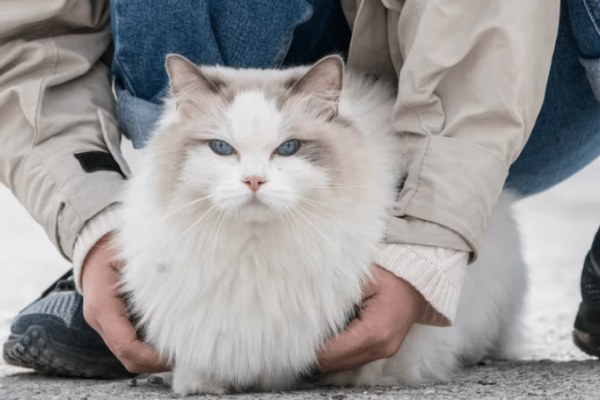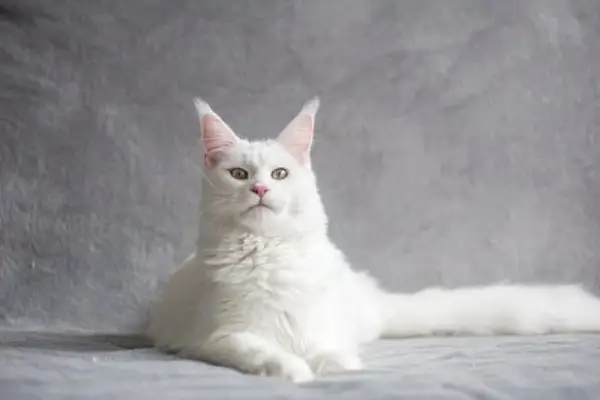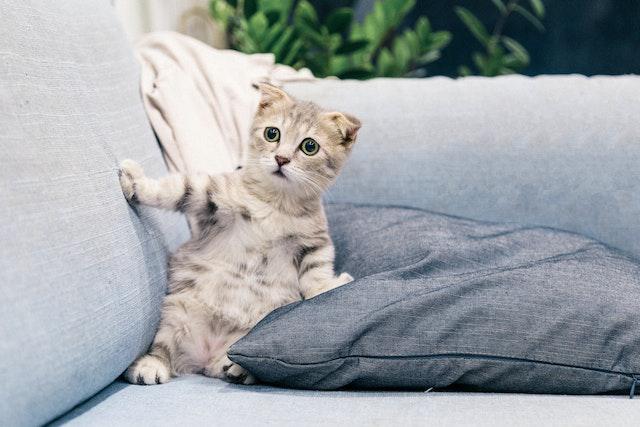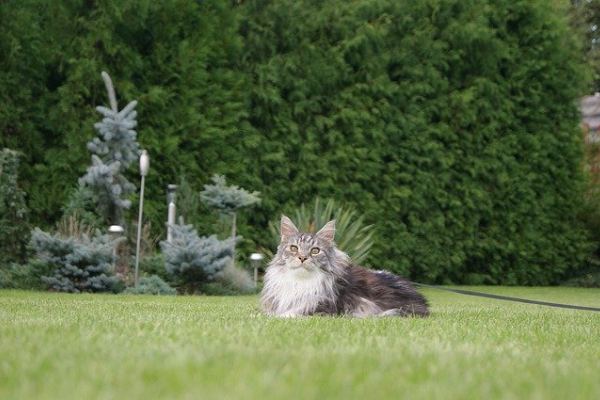11 British Shorthair Behaviour Problems & Tips
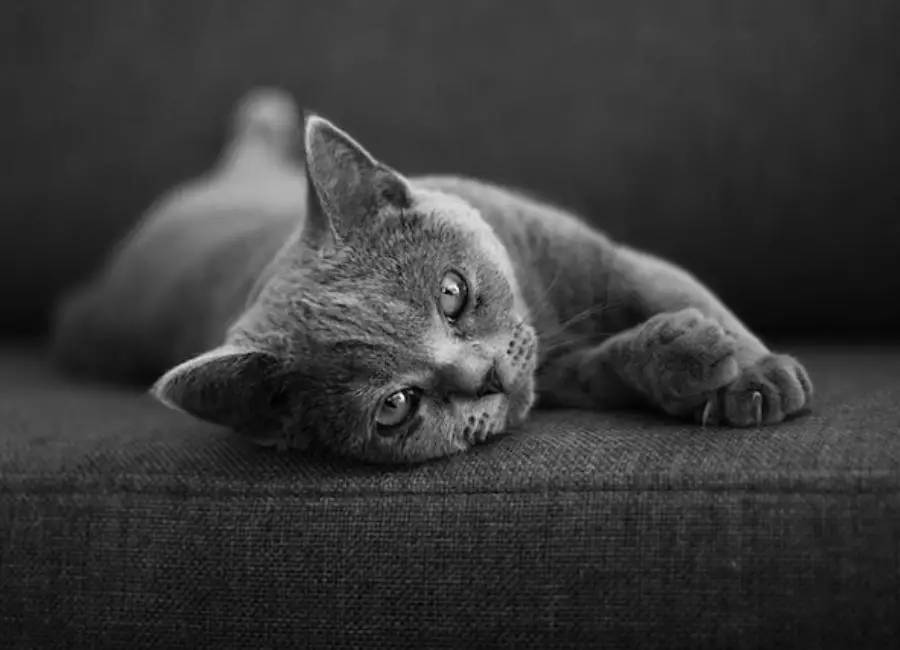
Cats are adorable creatures, but behavioral issues can happen to the best of them, including our beloved British Shorthairs.
Whether it’s aggression, scratching, or excessive meowing, these problems can be daunting and frustrating for pet owners. But fear not!
In this blog post, we’ll explore some of the most common British Shorthair behavior issues and offer practical, friendly advice on how to tackle them head-on.
British Shorthair Behaviour Problems
Here are some common British Shorthair behaviour problems and solutions to each:
1. Attention-seeking behavior
While attention-seeking behavior might not be a problem for some cat lovers, some find it problematic.
British Shorthairs are known for being extremely sociable cats and may do anything to get their owners’ attention, including leaping onto their laps, rubbing up against them, or meowing.
While this behavior can be cute, it can also get out of hand and upset others.
Establish limits and routines, give your cat lots of playtimes, and praise positive behavior to discourage attention-seeking behavior.
2. Separation anxiety
British Shorthair can stay on their own, but the question is for how long can they stay alone!
When left alone for extended periods of time, British Shorthairs may experience separation anxiety because they can get highly devoted to their owners.
Inappropriate urine, excessive meowing, and destructive behavior might result from this.
Try to gradually accustom your cat to being alone, give them lots of toys and comfort things, and think about adopting another cat as a buddy to reduce separation anxiety.
Learn more about leaving the British Shorthair Cats alone.
3. Begging for food
Because of their penchant for eating, British Shorthairs may pester or even steal food from their owners or other animals.
Overeating, however, can result in obesity and other health problems.
It’s crucial to maintain a regular feeding schedule and practice portion management in order to stop begging behavior.
To keep your cat amused and cognitively occupied, you may also provide them interactive toys or puzzle feeders.
4. Unnecessary scratching
Cats naturally scratch to mark their territory, stretch their muscles, and maintain the sharpness of their claws.
The absence of a suitable scratching post or a liking for a certain texture, on the other hand, maybe the cause of your British Shorthair clawing furniture or other inappropriate surfaces.
A robust scratching post made of wood, cardboard, or sisal might assist your cat to change the direction of its scratching.
By covering the furniture or other surfaces with aluminum foil or double-sided tape, you may also try to make them unpleasant.
5. Unnecessary Aggression
British Shorthairs are capable of acting aggressively in a variety of ways, including territorial aggressiveness toward other cats or people when it is not necessary.
When a cat thinks that its personal space or resources are being invaded, territorial aggressiveness may develop. Hissing, snarling, or even violent assaults may occur from it.
British Shorthairs frequently exhibit predatory behavior, particularly if they lack playtime or are bored.
Early socialization can help with unnecessary aggression, except if your cat is sick.
A veterinarian or animal behaviorist should be consulted if your cat displays hostility in order to determine the root of the problem and come up with the best course of action.
6. Hiding or isolation
While being in general gregarious cats, British Shorthairs may hide or avoid contact.
This could be the result of anxiety or shyness, particularly if the cat is a rescue that hasn’t had much socializing.
Provide them somewhere to go when they are feeling overwhelmed, such as a cardboard box or a cat tree.
Be patient with them as they learn to interact with new people and settings.
7. Nighttime activity
Because British Shorthairs tend to be nocturnal, their owners’ sleep may be disturbed at night when they become noisy and energetic.
Try to develop a regular evening routine, provide your cat with a peaceful sleeping location away from interruptions, and engage them in play or exercise throughout the day to tire them out to prevent midnight activity.
8. Overeating
British Shorthairs have the propensity to overeat, so it’s crucial to keep an eye on their consumption to avoid obesity and other health issues.
Give them a healthy meal, and think about using puzzle feeders or slow-feed bowls to make them eat more slowly.
9. Unnecessary licking when bored
Some British Shorthairs may excessively lick themselves or their owners. This can be a sign of anxiety or boredom.
Provide your cat with plenty of toys and playtime to keep them entertained, and consult with a veterinarian if the behavior persists.
10. Unnecessary chewing when bored
Because of boredom or curiosity, British Shorthairs may chew on unsuitable items like houseplants or electrical cables.
If the object is poisonous or if the cat chokes on it, this behavior might be harmful and even fatal.
Make sure your cat has enough toys and chew sticks to play with to discourage chewing tendencies.
To make things undesirable, you may also apply deterrent sprays or chemicals with an unpleasant taste.
11. Fearfulness
British Shorthairs’ fear-based responses might be sparked by unfamiliar persons, animals, or circumstances.
When cats sense a threat or are uneasy, they may hiss, snarl, or hide.
Your cat can develop confidence and get over their anxiety by being exposed to new settings gradually.
While exposing your cat to new people or animals, you may also give them a safe and cozy setting, such as a closed room or a carrier.
Ways to manage/prevent British Shorthair behavior problems
Here are some general tips:
- Regular veterinary check-ups: It is important to take your British Shorthair cat for regular veterinary check-ups to monitor their overall health and address any potential health problems that could lead to behavior issues.
- Proper nutrition: Feeding your cat a balanced and nutritious diet is crucial for their health and well-being, which can have an impact on their behavior as well. Make sure you are providing your cat with food that meets its nutritional needs.
- Basic training: Basic obedience training can help prevent behavior problems by teaching your cat important skills and behaviors such as using the litter box, scratching appropriate surfaces, and responding to basic commands like “come” and “sit.”
- Provide mental stimulation: Boredom can lead to behavior problems, so it is important to provide appropriate mental stimulation for your cat. This can include providing toys, puzzles, and scratching posts, as well as playing with your cat regularly.
- Consistent routines: Cats thrive on routine, so it is important to establish consistent feeding, play, and sleep schedules to help prevent behavior problems.
- Provide a safe and secure environment: British Shorthair cats need a safe and secure environment in which they can feel comfortable and relaxed. Make sure you provide a secure indoor environment and provide a litter box, scratching posts, and quiet spaces for resting.
- Socialization: British Shorthair cats are generally friendly and enjoy being around people and other cats, but early socialization is important to help prevent behavior problems.
- Address issues early: If your cat does develop a behavior problem, address it early on to prevent it from becoming a more significant issue.
- Consider consulting with an animal behaviorist: If you are experiencing significant behavior problems with your British Shorthair cat, consider consulting with an animal behaviorist who can provide specialized guidance and treatment options.
Frequently Asked Questions
What are the common behavior problems in British Shorthairs?
Some common behavior problems in British Shorthairs include scratching furniture, begging, licking, chewing, and aggressive behavior.
How can I stop my British Shorthair from scratching furniture?
To prevent your British Shorthair from scratching furniture, you can provide scratching posts or mats, and discourage them from scratching by using deterrents like double-sided tape or aluminum foil.
My British Shorthair bites me, what should I do?
You should never physically punish your cat for biting as it may reinforce their aggressive behavior. Instead, try to identify the cause of the biting and address it.
You can also redirect the biting behavior by providing an appropriate toy for them to play with.
My British Shorthair is always aggressive towards other pets, what can I do?
If your British Shorthair is constantly aggressive towards other pets, you may need to introduce them slowly and gradually to each other under supervision.
Provide them with separate spaces for eating and sleeping and positive reinforcement when they interact positively with each other.
How can I train my British Shorthair to stop his bad behavior?
Consistency is key when training your British Shorthair.
Use positive reinforcement techniques like treats and toys to reward good behavior and discourage bad behavior with deterrents like vocal correction or removal of attention.
Should I use punishment to stop my British Shorthair’s behavior problems?
It is not recommended to use punishment to stop your British Shorthair’s behavior problems as it may cause fear and anxiety, leading to more behavior problems.
Positive reinforcement and correction techniques are more effective and humane methods to train your cat.
Conclusion
In conclusion, British Shorthair cats are generally well-behaved and make great pets.
However, like any other breed, they may exhibit certain behavior problems that need to be addressed.
By understanding their needs and providing them with proper care and attention, you can help prevent and manage these issues.
Remember to always consult with a veterinarian or animal behaviorist if you have any concerns about your cat’s behavior.


